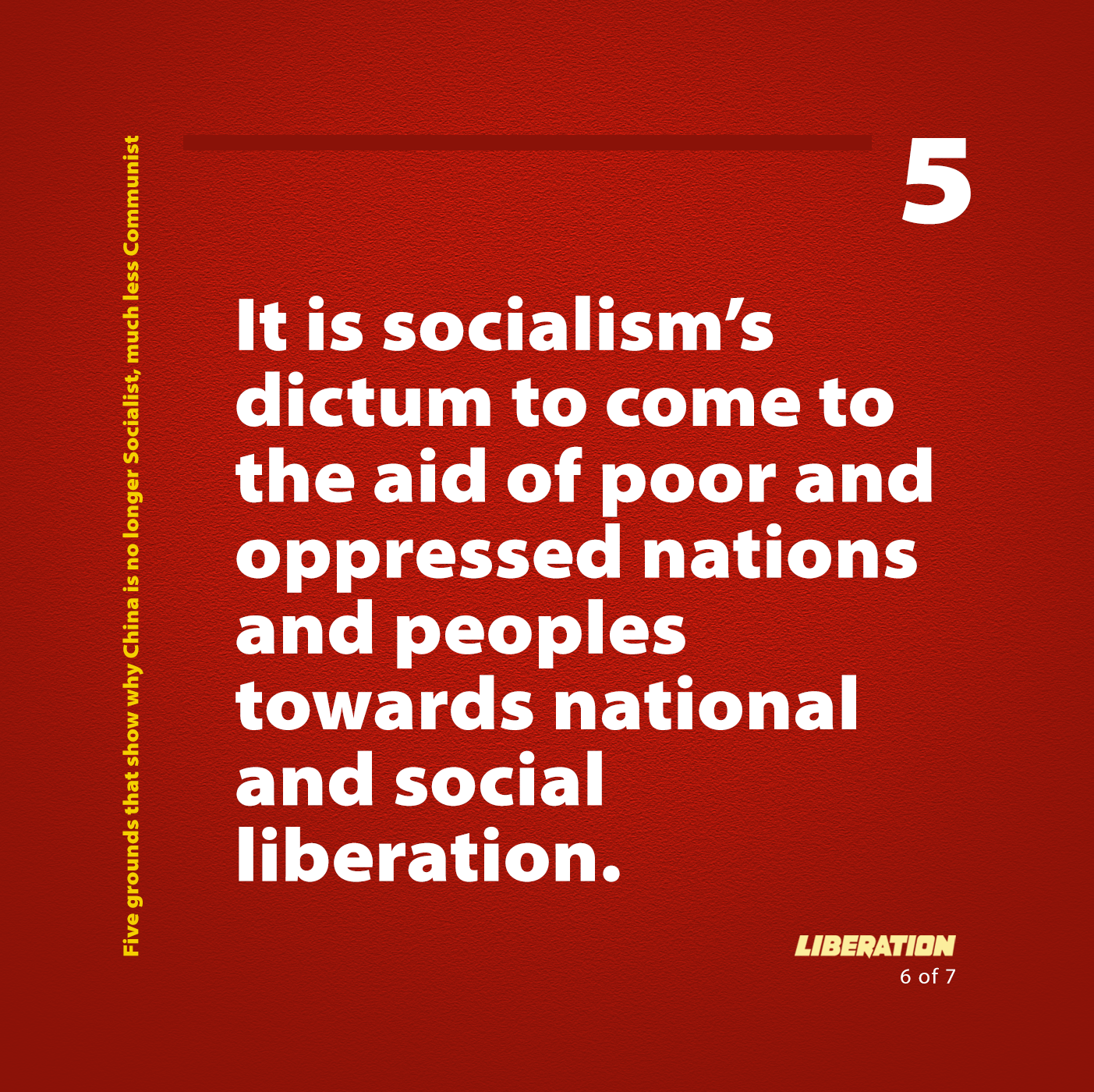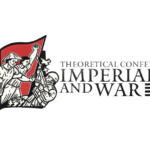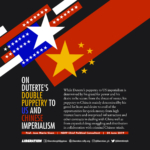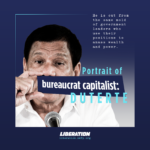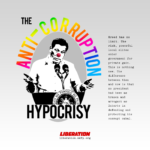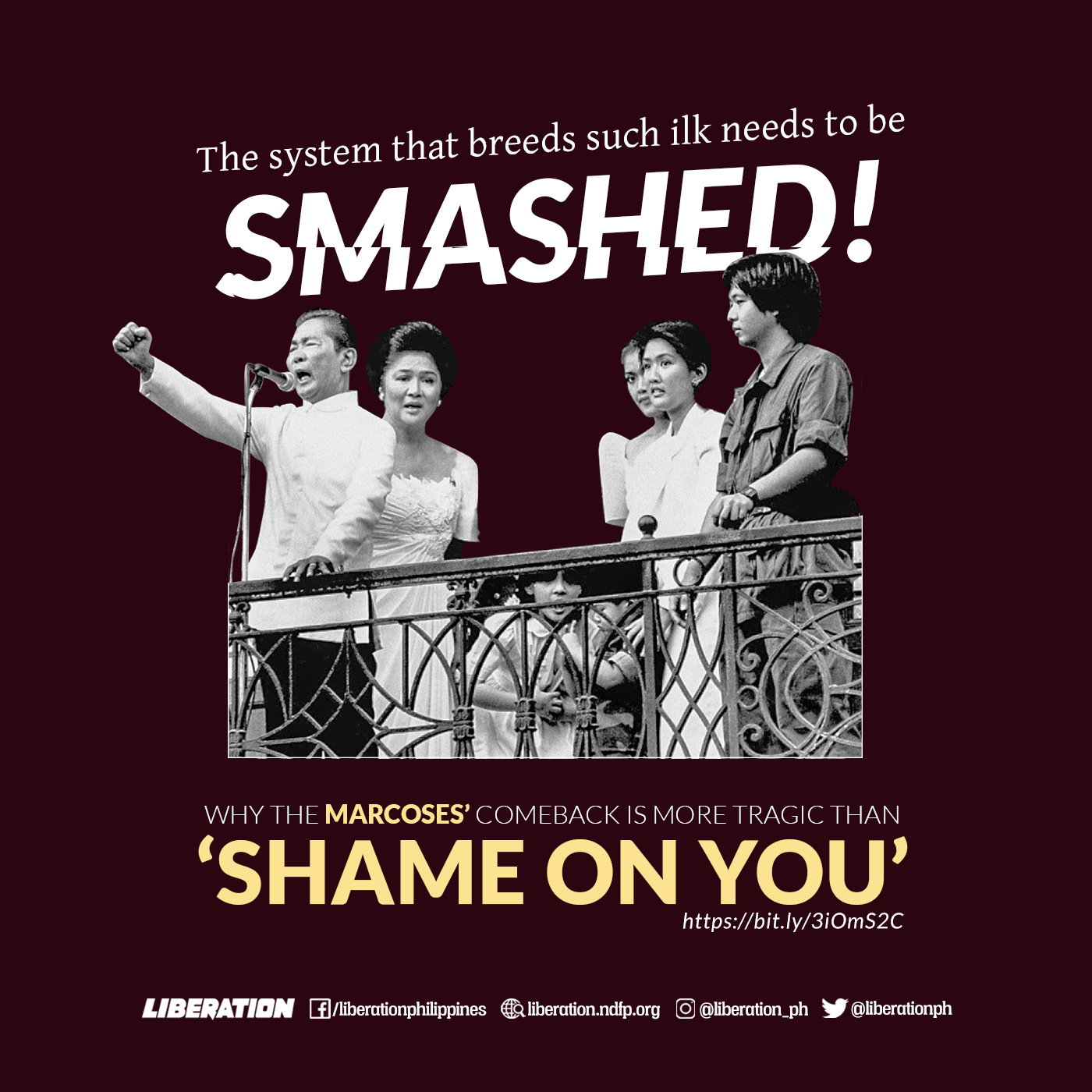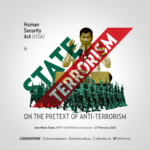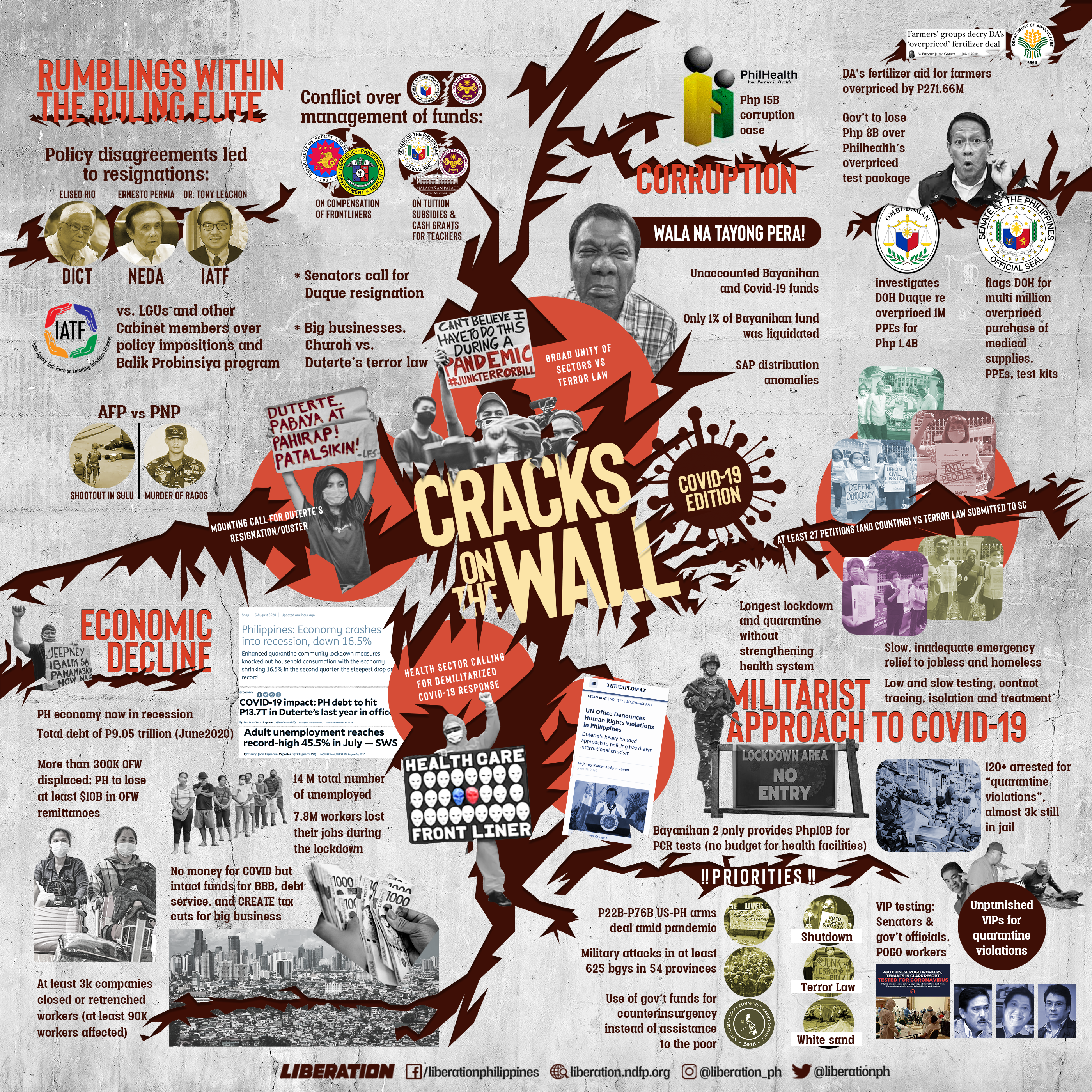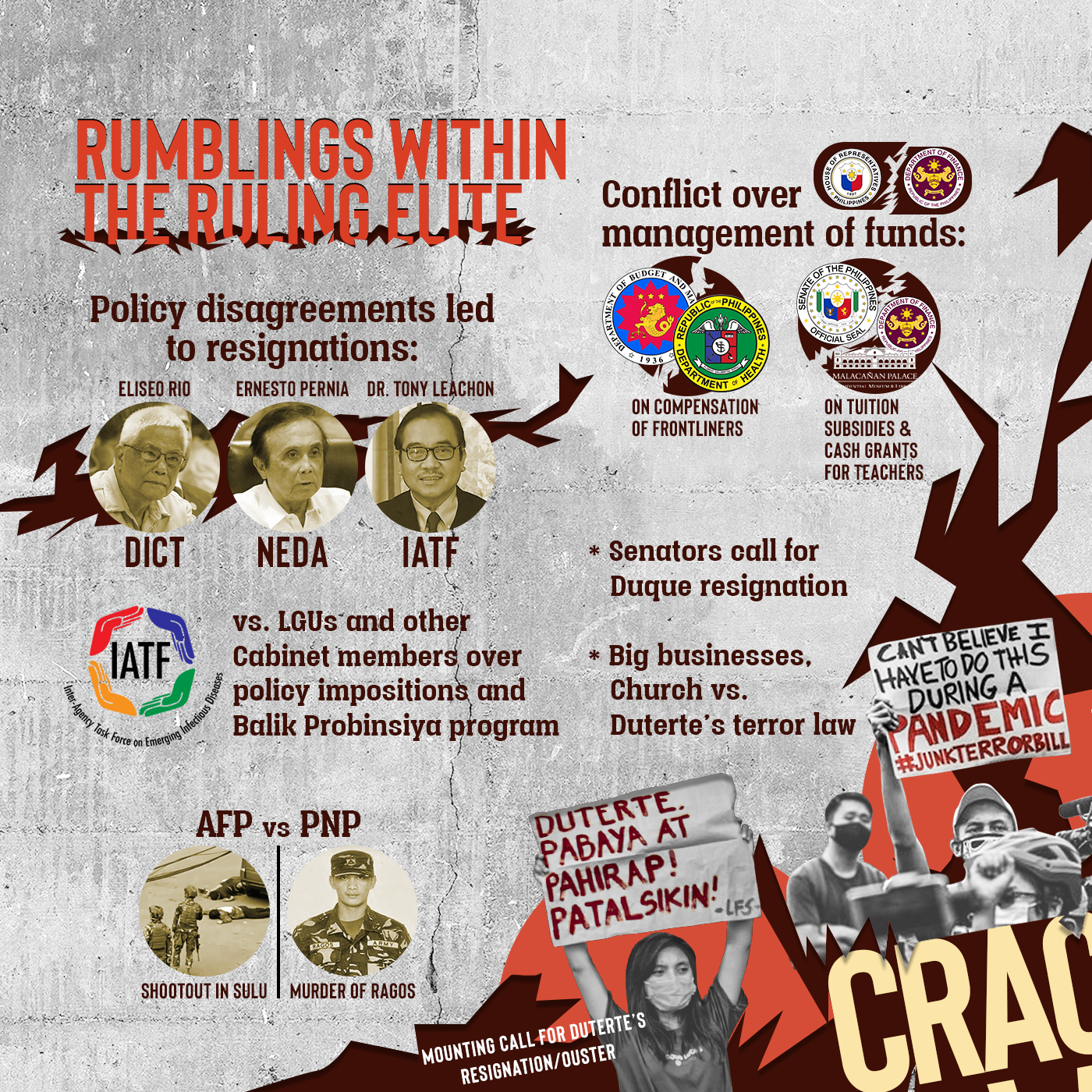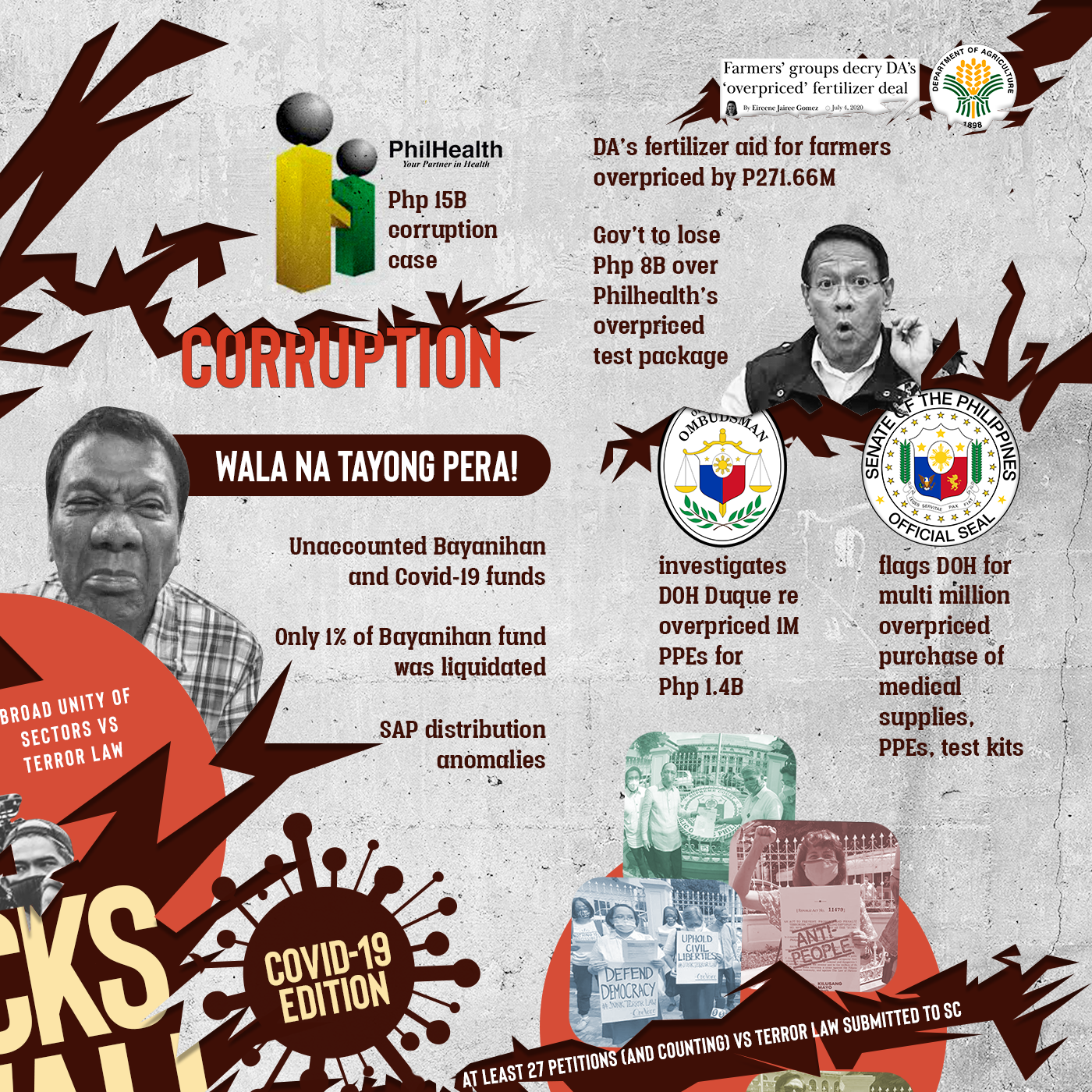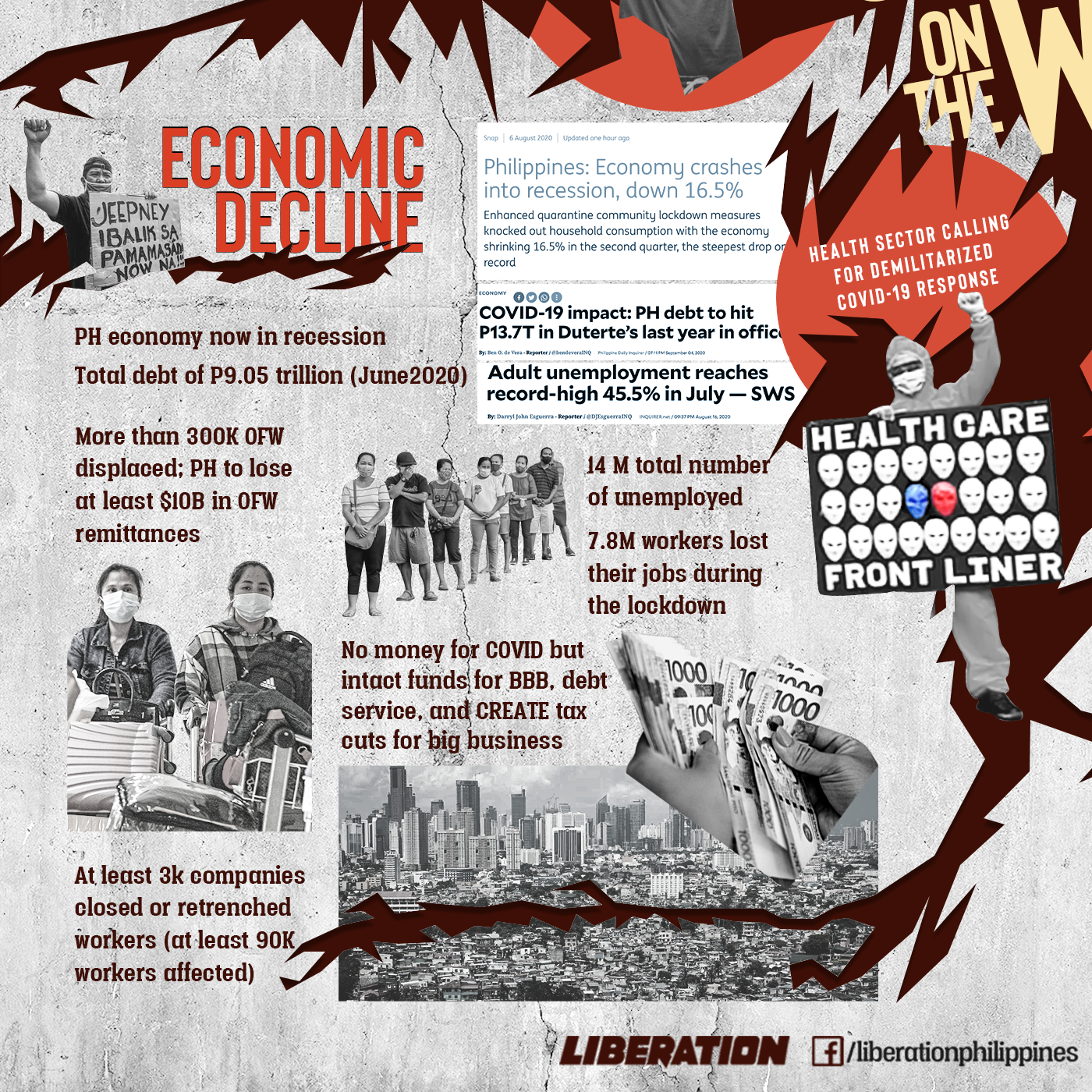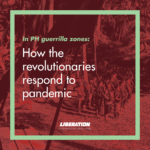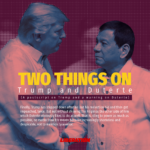Five grounds that show why China is no longer Socialist, much less Communist

Up until today, and probably for more decades to come, China will continue to harp on having a system of an “advanced socialism with Chinese characteristics”. But even to ordinary tourists in China, what appears to mesmerize them is China’s speedy turn towards capitalism.
This great country, founded as a people’s republic under Mao Tse Tung 70 years ago, was a blazing icon for many of the world’s revolutionaries and proletariat, including those in the Philippines. China inspired millions as it initially transformed itself from a backward semi-feudal, semi-colonial toward a progressive and socialist country.
But in no time at all after Mao’s passing, revisionism struck its ugly chord; systematically it demolished socialism and restored capitalism. Now China is a fast-emerging imperialist power challenging the heretofore lone imperialist superpower, the United States, after the unravelling of the Soviet Union towards the end of the 1980s.
What has become of socialism then? It remained in China only “in words, not in deeds”. The Chinese “communist” leadership has become a master of duplicity, hiding behind socialist slogans, yet brazenly collaborating and colluding with capitalist powers while creating its own brand of monopoly capitalism.
The first thing the revisionists did a few years after Mao’s death was to thoroughly revile the Great Proletarian Cultural Revolution (GPCR), so much so that until now, few publications, especially in the culturally influential “West”, write about the GPCR without choice insults thrown in against it.
Were it not for the succeeding Chinese leadership’s duplicity and use of force against genuine communists, the peoples of the world would have seen how Mao’s theory of continuing revolution (as embodied in the GPCR) would have continued to make leaps and bounds in modernizing and developing not only China, but perhaps the rest of the world as well, along historically unprecedented socialist lines.
The GPCR was the Chinese communists’ endeavor to ensure that the proletariat and the people actually (not nominally) rule; that they actually own, manage, and equitably share in the nation’s production and wealth. The GPCR was designed as a national check against revisionism, against the return in various guises of parasitic exploitation by one social class of another class—be they called, in the “West” as capitalists or, in China as Party leaders and entrenched bureaucrats along with their relatives.
The continuing attack against the GPCR and the reign of duplicitous Chinese leadership represent, at once, the monumental possibility as well as the tragedy in the struggle of the world’s proletariat. Possibility because due to China’s socialist undertaking it was able to advance in so short a time. Tragedy because its advance was cut short much too soon even though Mao had emphasized early on that the revolution is a continuing one.
We all have seen, or are still reeling from, the parasitic and fatal course of imperialism. How much more hopeful and glorious our tomorrow would have been, if our revolutionary struggles continued while a truly communist party and a socialist China both remained standing tall. As things stand now, we owe it to ourselves and our future to correct the historical injustice to the GPCR, while we persevere in the revolutionary struggle to free ourselves from capitalist exploitation.
For many, capitalism or imperialism is so ubiquitous and easy to spot. But imperialism as “socialism with Chinese characteristics”? The peoples of the world have heard, or read about, the garbage spoken or written against communism. Let us not add to it by calling today’s China “communist.”
For any reader who may have been lost in, or confused by, China’s transition to capitalism, here are a few basic communist traits. Compare these traits to the real world of China today, and we can see clearly that the Chinese leadership is lying through its teeth about being communist:
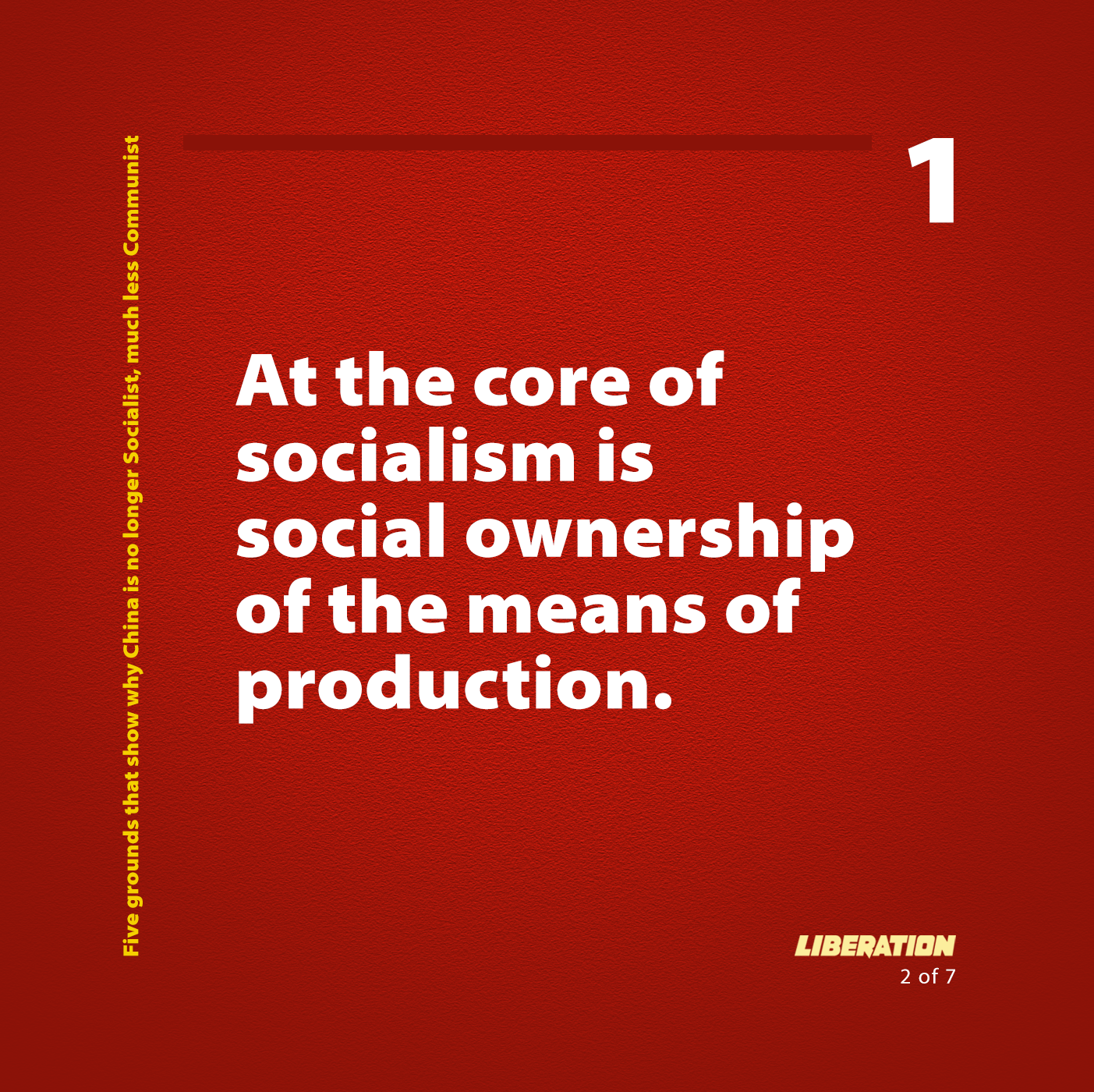
1. At the core of socialism is social ownership of the means of production.
Most of the land and strategic industries were declared public property, administered by the State or by people’s collectives. But the revisionists have effected major reversals. They have dismantled collective land ownership along with collective cultivation and administration. They have broken up and emasculated the communes and turned over their former dominion as piecemeal responsibilities of individual families. The revisionist State has closed down or sold off many State enterprises. Privatization, liberalization, deregulation—all neoliberal policies— have been let loose to gain foothold in Chinese agriculture and industry.
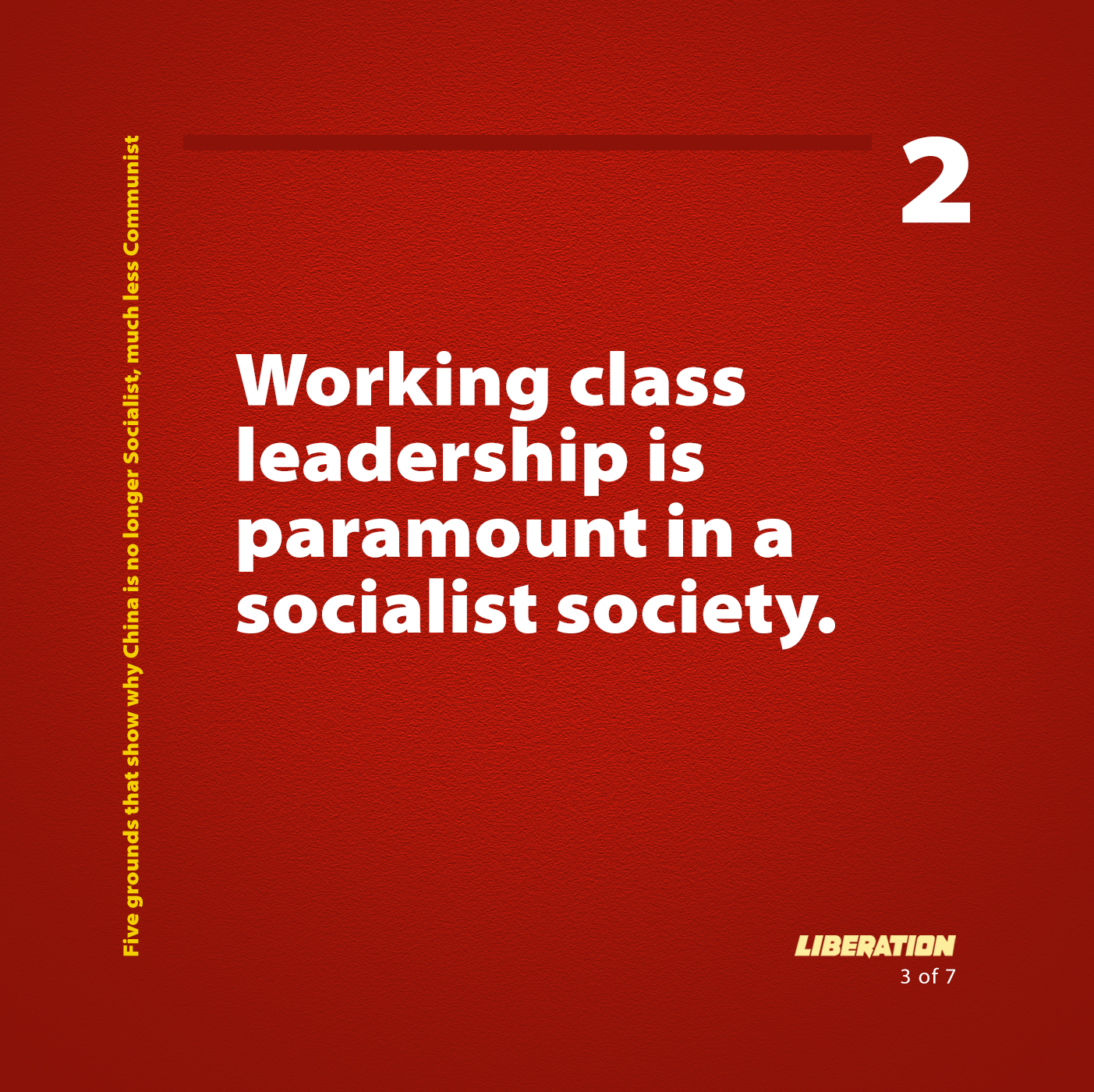
2. Working class leadership is paramount in a socialist society.
Yet the Communist Party of China, which leads the State, has turned into a bourgeois-led party. Long before it allowed capitalists—newly-minted billionaires at that—to become party members, the party cadres themselves had become bureaucrat capitalists. They dip their hands into public funds, enjoy and dispense privileges, engage in crime and corruption. Membership in the Party has become for sale, with huge payouts especially among bureaucrat princelings and billionaires. These bureaucrats thrive in a state of monopoly capitalism.
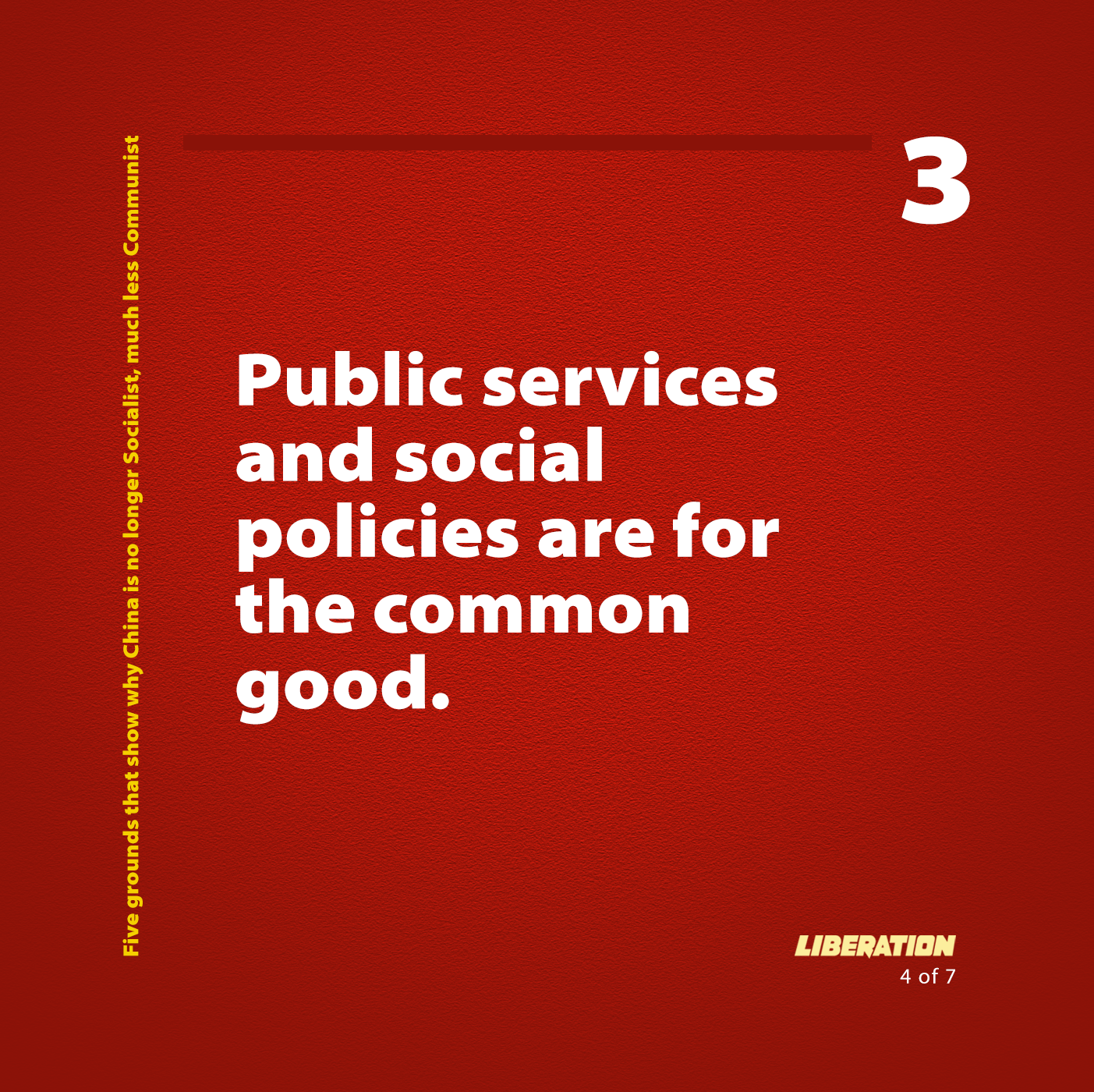
3. Public services and social policies are for the common good.
These are given priority in a socialist society. Yet under revisionist leadership severe cutbacks have been imposed on wages, food, education, health, housing, etc. Urban migration has ballooned as the landless, the dispossessed and the jobless migrants from China’s vast countryside converge in the cities in quest for jobs. Productivity has been prioritized over welfare and job security. Even the “right to strike” has been stricken out of the constitution.
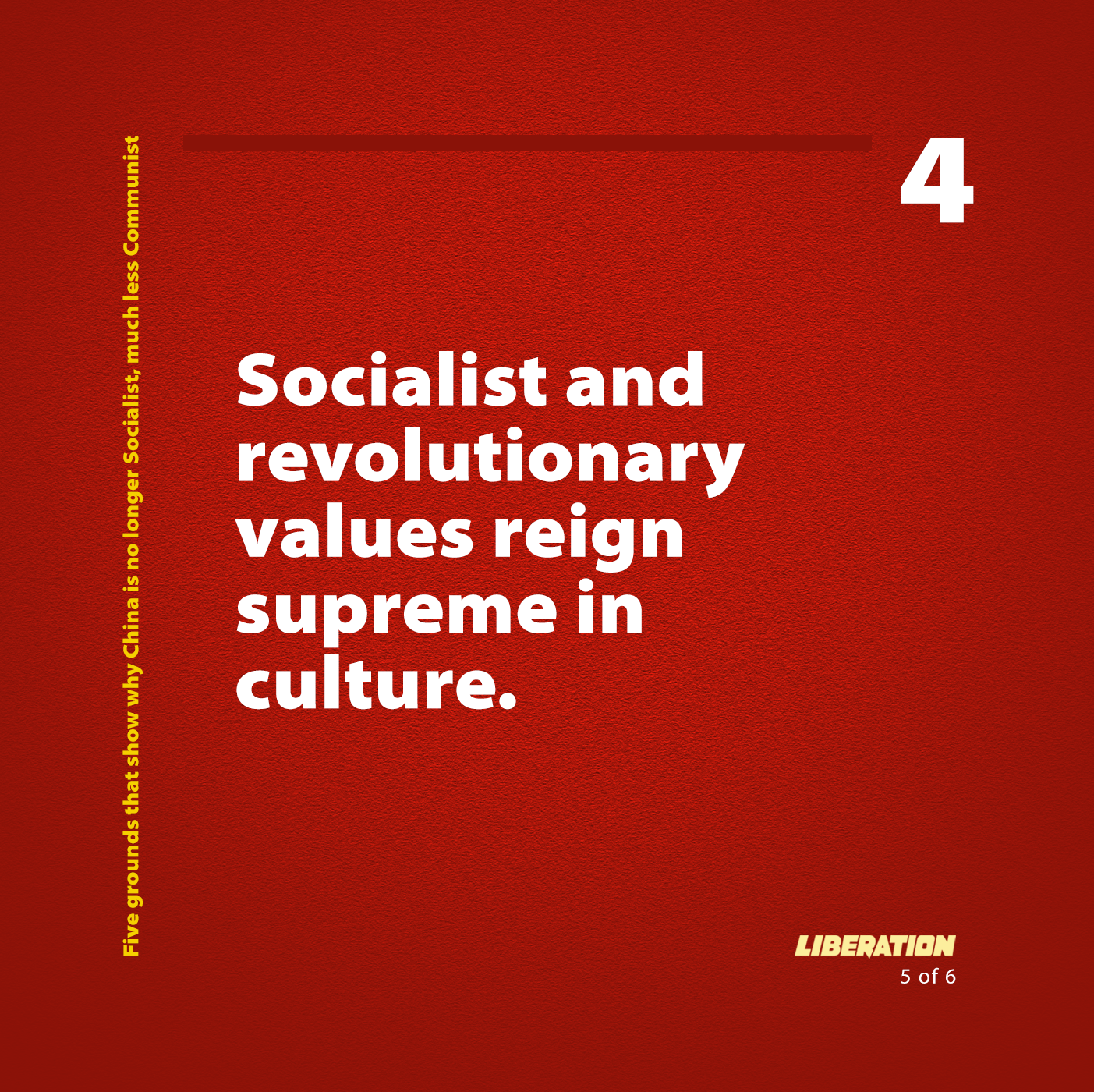
4. Socialist and revolutionary values reign supreme in culture.
But the memories of China’s socialist revolution as well as those of other countries have been viciously obliterated. There are surmounting efforts to revise and distort Marxism-Leninism-Maoism. The spirit of revolutionary solidarity and cooperation that previously reigned high has been downgraded.
5. It is socialism’s dictum to come to the aid of poor and oppressed nations and peoples towards national and social liberation.
But this is not the spirit by which China nowadays exports capital, grants aid, or lends to nations. Far from international solidarity, China has become one of the world’s biggest creditors and uses its power to amass profit and to influence and intervene in other nations’ internal affairs in furtherance of China’s imperialistic aims. It is increasingly becoming a major military power as well to protect and advance its imperialistic interests. It is expanding its influence and dominion in many parts of the world, competing more and more aggressively with other major powers for markets and territories.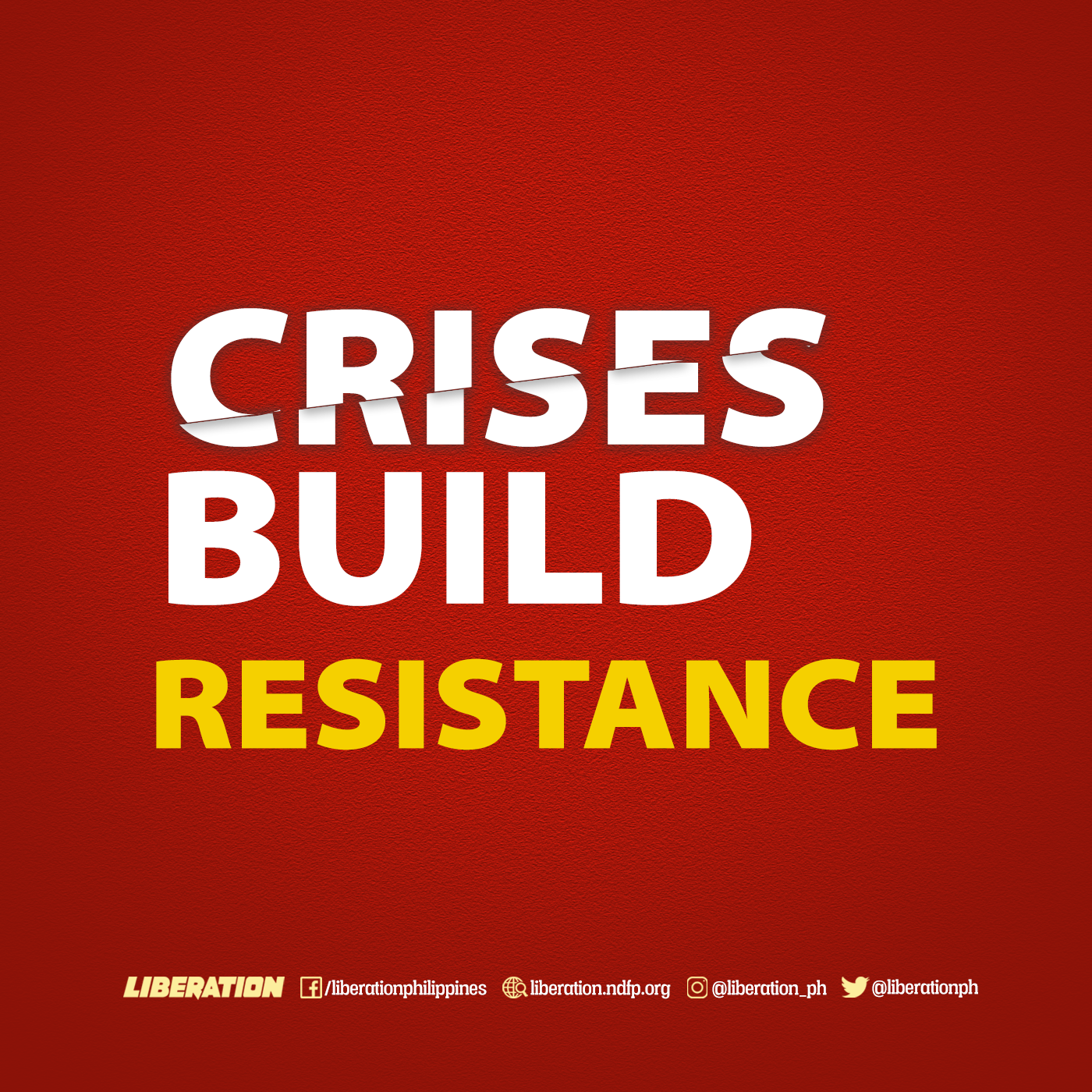 Though the proletariat in China and in the rest of the world have encountered this huge setback, the fact remains that, scientifically speaking, over the long haul “capitalism digs its own grave.” The capitalist/imperialist system’s inherent contradictions have been spurring recurrent crises that it cannot continue trying to avoid, to delay, or worse to downplay by mislabeling it.
Though the proletariat in China and in the rest of the world have encountered this huge setback, the fact remains that, scientifically speaking, over the long haul “capitalism digs its own grave.” The capitalist/imperialist system’s inherent contradictions have been spurring recurrent crises that it cannot continue trying to avoid, to delay, or worse to downplay by mislabeling it.
These crises, which have been growing worse in each succeeding round, naturally breed resistance. Despite repression and censorship by China’s capitalist roaders, for instance, the masses continue to resist in the countryside as well as in the cities. In due time, Mao’s unfailing faith in the masses will ultimately prevail and turn the tide in favor of socialism. ###
#FightModernRevisionism
—–VISIT and FOLLOW
Website: https://liberation.ndfp.info
Facebook: https://fb.com/liberationphilippines
Twitter: https://twitter.com/liberationph
Instagram: https://instagram.com/liberation_ph

